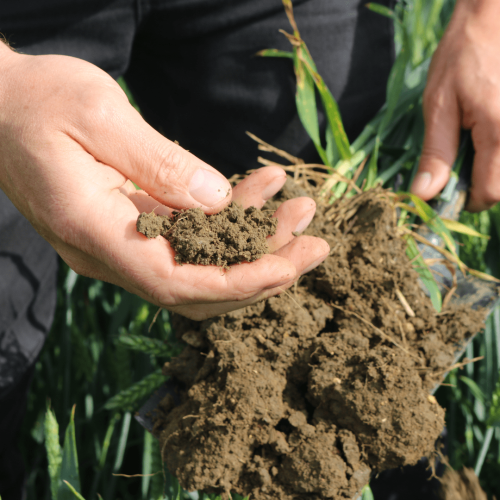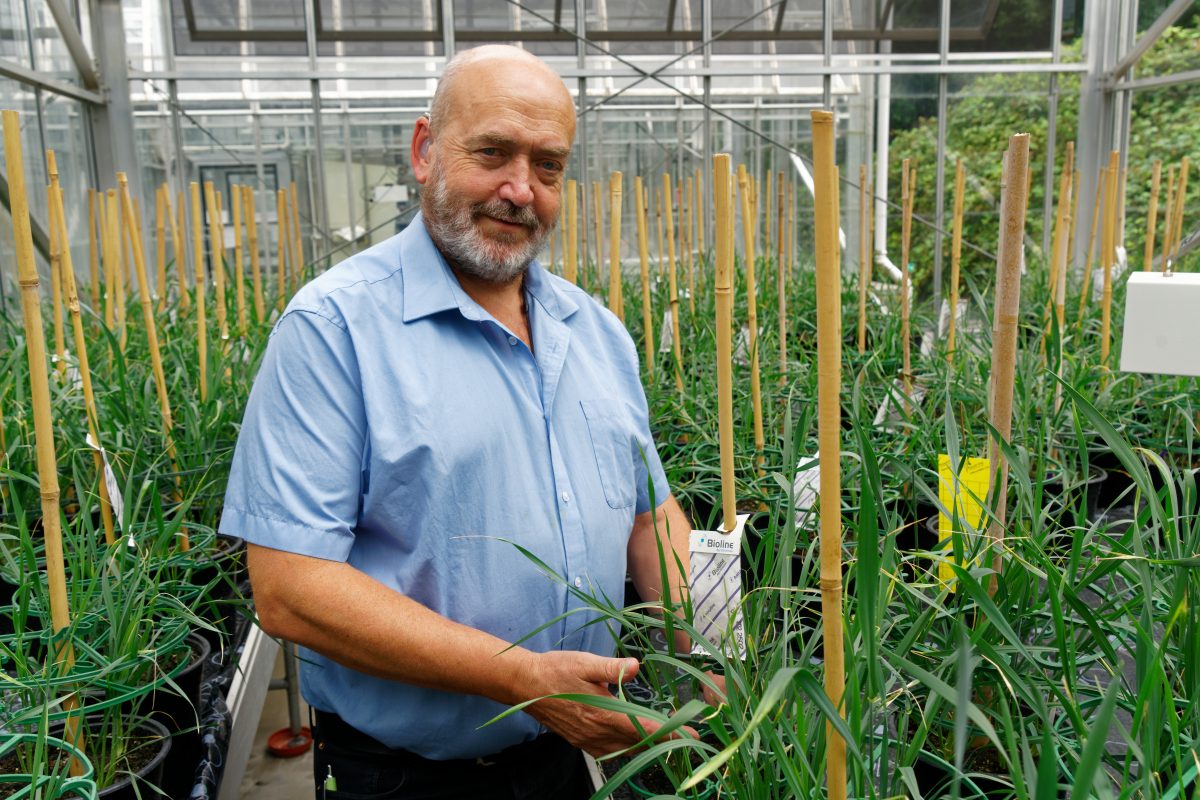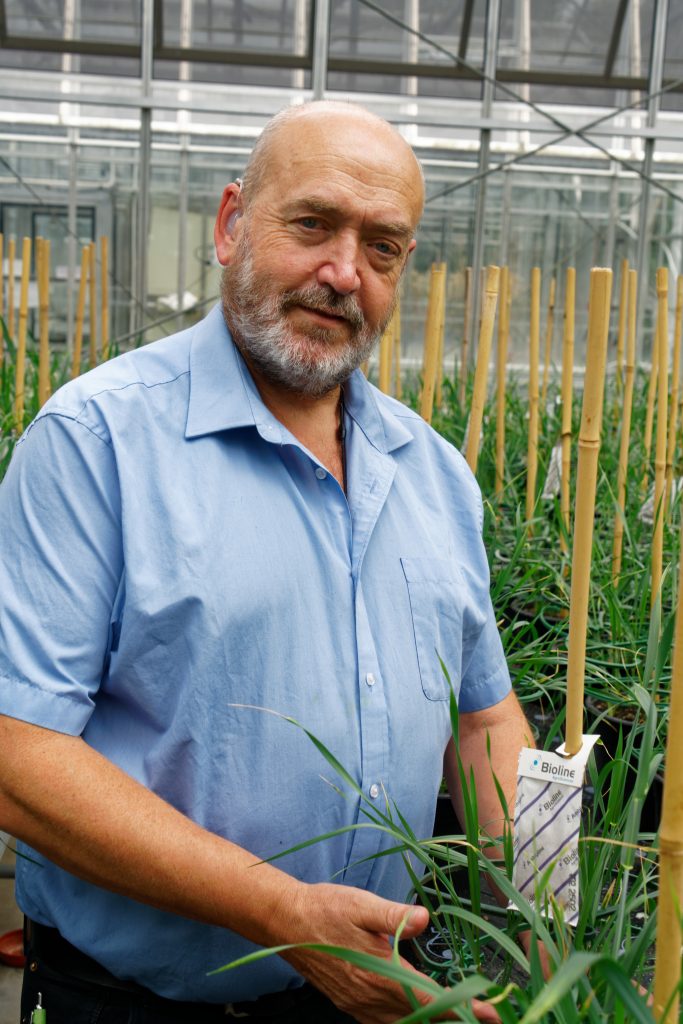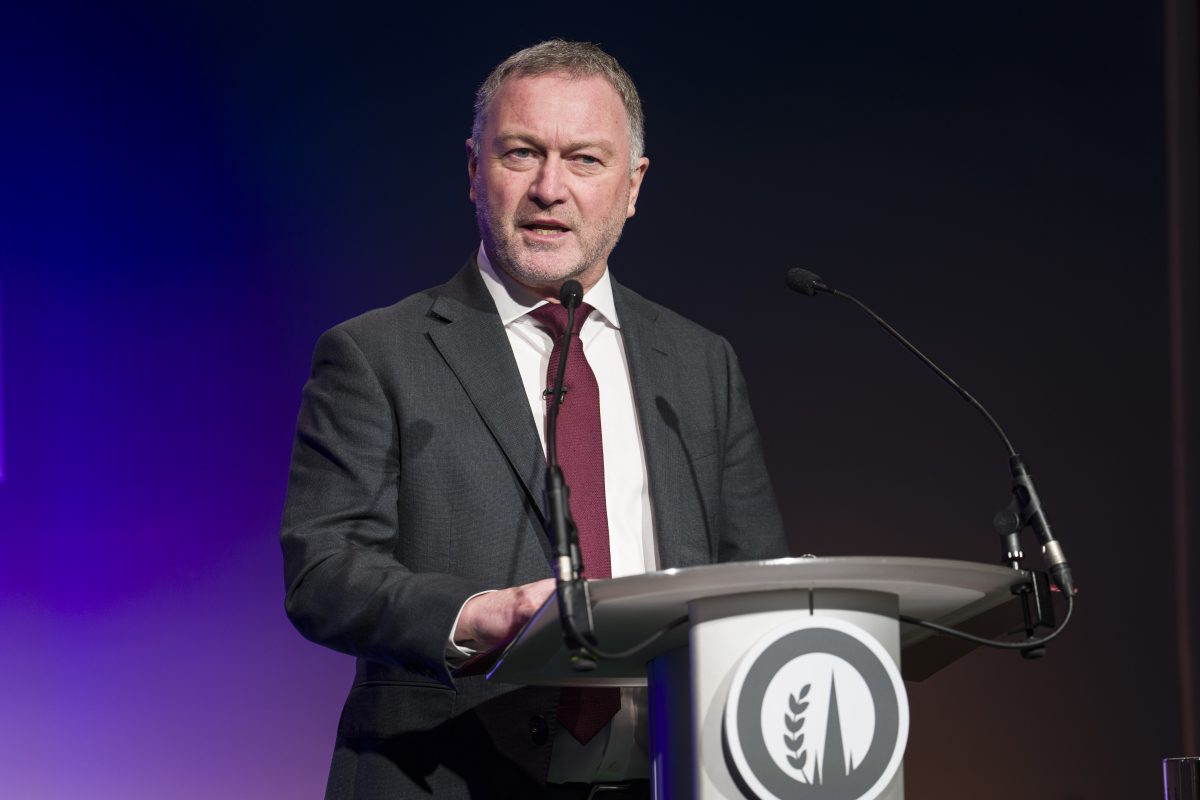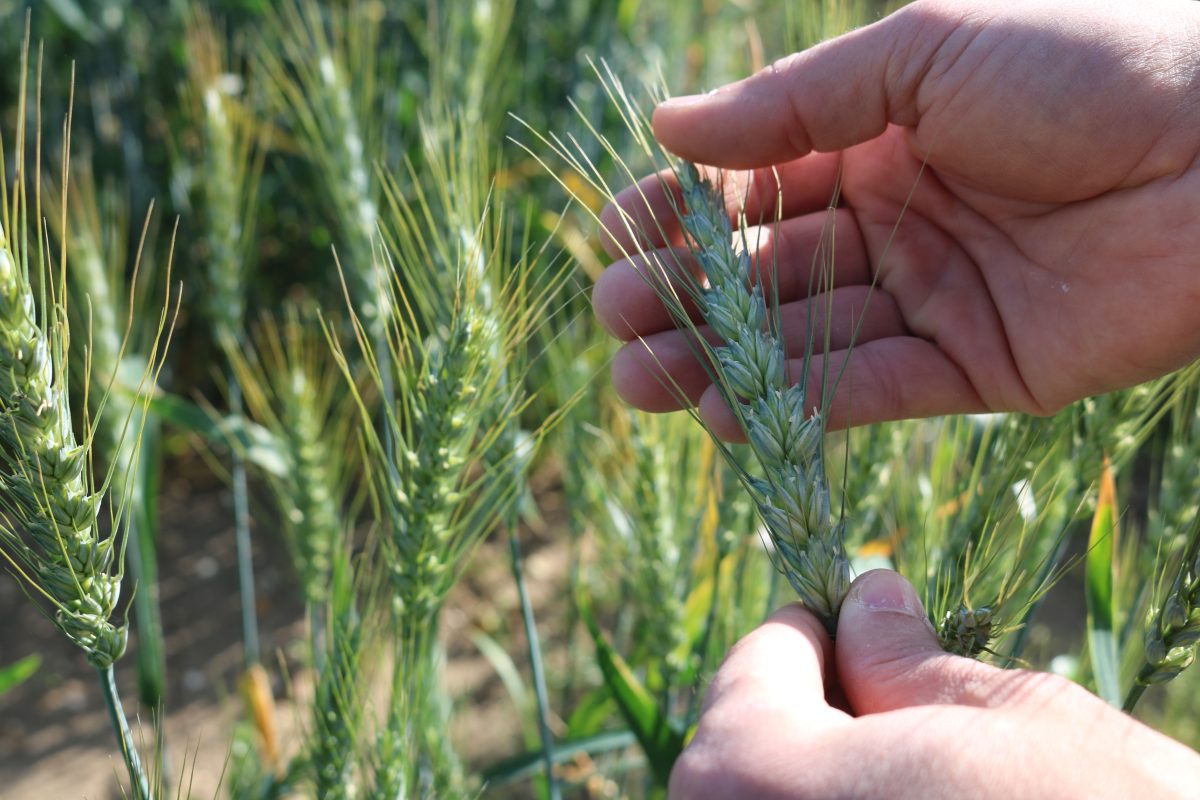Farmer and scientist collaboration helps to unearth soil secrets
Farmers and scientists working on the TRUTH Project have revealed some intriguing findings from their first year of working together.
TRUTH (Thriving Roots Underpinning Total soil Health) is a three-year £1m project with twin aims of boosting productivity while improving soil health. The project is led by the British On-Farm Innovation Network (BOFIN) with four partners UK Agri-Tech Centre, the John Innes Centre, University of Nottingham and PES Technologies.
Ten ‘Root Ranger’ farmers were paid to carry out on-farm trials in year one (2024), with an additional 10 recruited recently for year two (2025). The Root Rangers’ farms represent varied soil types, across conventional, regenerative and organic systems. They are based across the UK from East Lothian in Scotland to Downpatrick in Northern Ireland and as far south as the Isle of Wight. The farmers each chose a treatment they wanted to assess and have been trained in soil sampling methods.
Microorganism discovery
Dr Tom Thirkell of Crop Science Centre in Cambridge is an expert in mycorrhizal fungi which he has been studying in wheat root samples taken by the Root Rangers. As well as healthy populations of mycorrhiza, Tom’s analysis of the Root Rangers’ samples has also uncovered some “unidentified foreign organisms” (UFOs).
Some of these appear to be bacteria, while others are likely to belong to an ancient but newly-described group of fungi known as Mucoromycotina.
Tom said: “We believe these can also form beneficial interactions with cereal crop roots, but there has been very little study of them compared to the arbuscular mycorrhizas.”
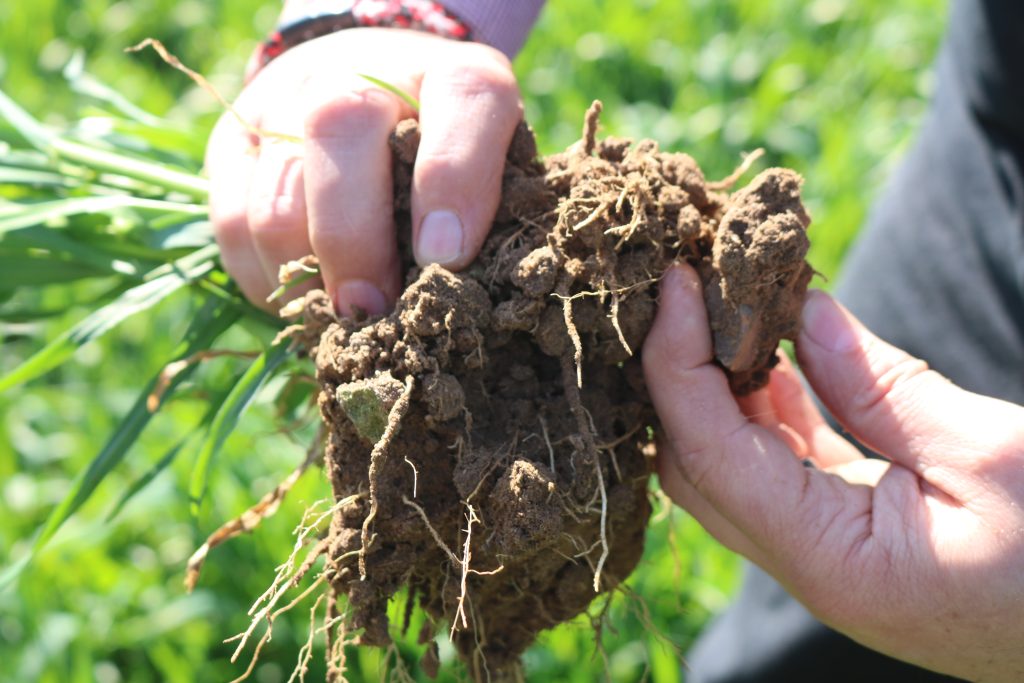
They were found in several samples and are not unique to a specific type of farm. “They are random in how they crop up, but a strength of this project is that we can repeat these tests in years two and three and see if there are any patterns.”
Tom also hopes that DNA sequencing of these samples may be possible in future, so that the ‘UFOs’ can be identified.
His findings from year one suggest that variations in fungal presence are influenced more by individual farms’ management practices, rather than the different treatments being trialled, but repetition of sampling in years two and three will develop this understanding further.
“There is a lot going on underground, but it can be uncovered through collaboration with farmers and other researchers through projects like TRUTH. It’s been well-documented that farm management impacts the soil microbiome. Moving forward, with an increased focus on sustainability and reduced chemical use, it is going to become more important.”
Microbial analysis
Dr Maria Hernandez-Soriano of the John Innes Centre is leading a fascinating investigation into soil microbial diversity. Her work involves analysing DNA from soil samples collected by Root Rangers across 10 farms, revealing a staggering 15,686 individual species.
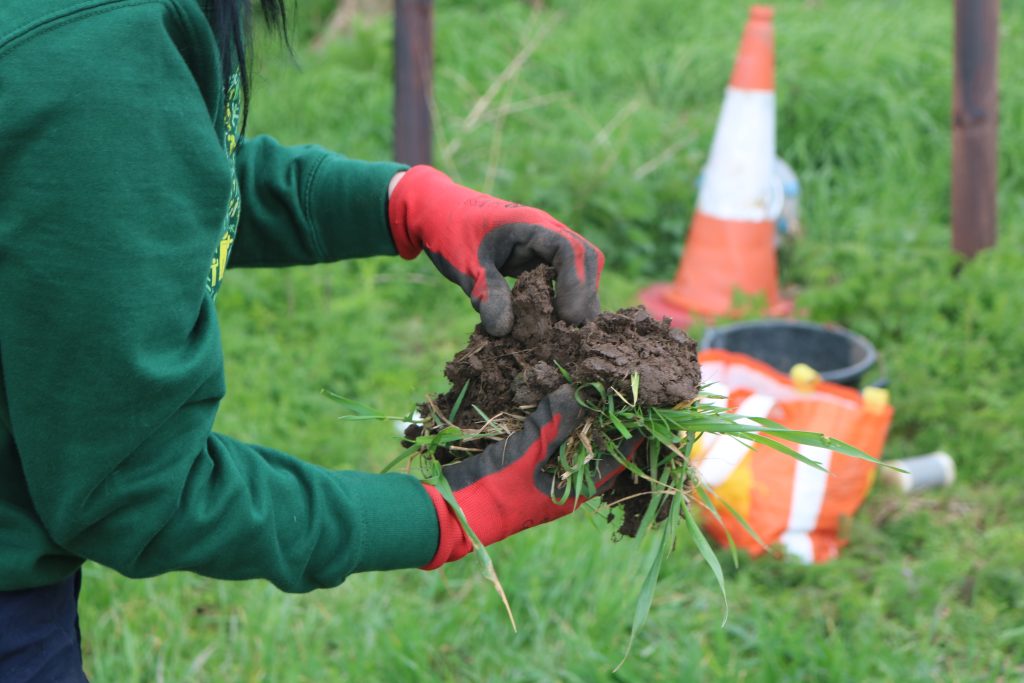
At the John Innes Centre laboratories in Norwich some 222 samples from the Root Rangers were carefully processed to extract the DNA. The DNA was then prepared for sequencing by specialists to ensure the best quality analysis, and finally sent to a leading provider of sequencing services.
The scientists then compiled a ‘library’ of all the DNA found in the samples, naming matched sequences using extensive databases. The result is a vast spreadsheet listing all the individual species found in each sample – a total of 15,686 across the Root Rangers’ soils. From there the data was analysed, drawing comparisons across different systems and the whole dataset, but also drilling down into individual farms’ results to assess and compare diversity.
Maria said: “At the moment the results are suggesting that management is the strongest influence.” In particular, the organic farmers amongst the Root Rangers had the most diverse samples with a significant difference in nitrification too.
Diversity is important because these microbes work together as part of a complex network, both in cooperation with each other and regulating their different roles in soil. “It’s a huge community – some of which we know a lot about while others are yet to be characterised.”
Understanding the activity of nitrification bacteria helps in improving nitrogen use efficiency, Maria added. She has been looking closely at two of the most prevalent nitrifying communities, Nitrososphaera and Nitroscosmicus archaea. These have become the biomarkers in the rhizosphere of modern cultivars following N-fertiliser application, to the detriment of other communities, she explained.
“The abundance of these microbes in soil dramatically increases when you apply ammonium-based fertilisers, rapidly turning ammonium into nitrate, which is highly soluble and easily lost to the environment through leaching or gas emission as nitrous oxide.”
Year two of the project will focus more on the rhizosphere and now with 20 Root Rangers on board the sampling will produce an even stronger dataset.
“Working on the TRUTH project is a dream,” says Maria. “The farmers have been brilliant, and have sent us quality samples meaning that scientists like me can focus on what we do best. Through our work together we can deliver information that is of real value to the farmers.”
A 360 view of soil health
The Root Rangers have also been given a unique view of their soil structure and root systems through X-ray Computed Tomography (CT) scanning.
Dr Craig Sturrock of the University of Nottingham explained that CT scans were used to compare soil ‘cores’ from the different farms. The farmers took samples from their chosen fields of first winter wheat using sections of plastic pipe (15 cm x 8 cm). These were hammered into the ground before being carefully excavated to preserve the structure of the soil and roots inside. Each of the Root Rangers took 10 samples in a typical w-formation, five samples from the treated area under scrutiny in their trials and five from the untreated area.
Craig explained: “It’s been a really exciting first year of the project, using the imaging technology to visualise the structure of soils across the UK, completely non-destructively, which is usually really difficult to see.
“We’ve found some nice differences between the soils. There’s variation between geographical location, soil texture, treatments, and differences in the root structure.”
The research highlighted the impact of management practices, such as ploughing and grazing. The results were not always as expected, with ploughed soil showing minimal differences to min or no-till. This may have been related to the time of sample collection being relatively late in the growth season (May 2024), where the soil has had time to settle after cultivation the previous autumn. “This year we plan to sample in March so tillage differences between sites may be more apparent.”
In year two the Root Rangers will repeat the sampling process, but this time with five soil cores just from untreated areas.
Craig concluded: “I’m really looking forward to year two of the project, seeing how the results will look and what more we can learn from repeating the sampling.”
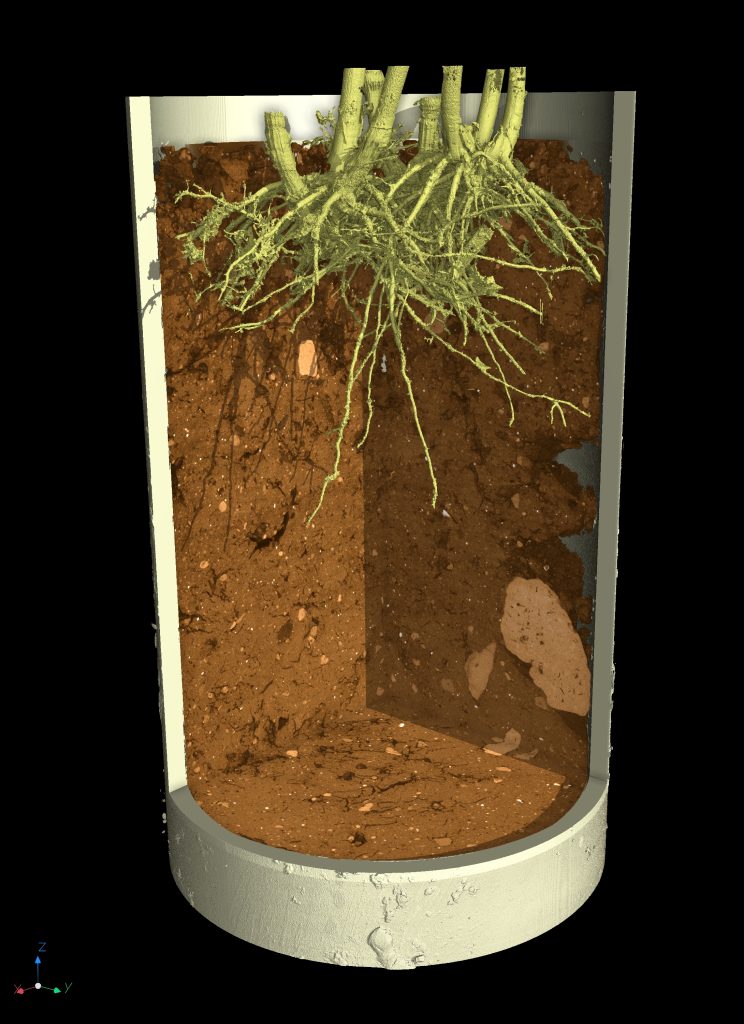
Root Ranger feedback
Anna Pearce is an organic farmer and seed producer from Northumberland. She joined the TRUTH project as she was keen to work with scientists to learn more about the health of the soil on her farm.
She said: “As farmers we don’t often get the opportunity to interact with scientists and this is a huge opportunity to be able to put our heads together.” Anna was particularly interested to find out how her soil compared to other farms and to see the soil core CT scans.
“It is fascinating to see pictures of what is under the ground,” she said. “It was reassuring to learn that my soil copes well with being lightly ploughed and that there is enough life in it to repair any changes to structure.”
Hertfordshire farm manager Ted Allen-Stevens also welcomed the opportunity to take part in the project, particularly as it validated the introduction of regenerative practices on the farm.
He said: “When I saw our results from the TRUTH project I felt that I had some real evidence that soil health had improved since we brought in regenerative practices here.
“It’s only when you drill down into the detail of your own farm that you can get that substance and reassurance of what you’re actually achieving.”
Next steps
The second year of the project will build on the successes so far, with the soil/root testing tools under further scrutiny by the farmers and scientists. An innovative soil health sensor, developed by PES Technologies, will also be circulated amongst the Root Rangers who will put it through their paces. The sensor is designed to measure microbial diversity and fungal:bacterial ratio.
Also, in year two novel wheat varieties are being multiplied ready for trialling on Root Rangers’ farms in the final year of the project. These include a ‘remarkable’ variety that can moderate its own nitrogen supply. Originating from Iran, this particular wheat landrace is part of the historic Watkins collection at JIC.
Maria Hernandez-Soriano explained: “What is interesting about this particular wheat, is that it has demonstrated capacity to decrease the transformation of ammonium into nitrate in the soil. This is believed to be an adaptive trait.”
It means much less nitrogen from fertilisers potentially being lost to the environment and more being taken up and used by the wheat plant itself, because it is controlling the transformation in soil and optimising the uptake.
“We haven’t observed that same capability or trait in any commercial wheat cultivars yet, so that is remarkable.”
Tom Allen-Stevens, managing director of the British On-Farm Innovation Network (BOFIN) which leads the project said: “The quality of samples and resulting data has proven again the value of on-farm trials and what can be gained when farmers and scientists work together.
“There is a huge appetite amongst farmers to learn more about soil health. This project is paving the way for discoveries about how we can improve the long-term productivity of our farms through improved understanding and management of our most precious resource.”
TRUTH is funded by the Farming Futures R&D fund, part of Defra’s Farming Innovation Programme. Defra is working in partnership with Innovate UK, the UK’s innovation agency, who are delivering the programme. TRUTH is led by BOFIN alongside PES Technologies, UK Agri-Tech Centre (which is responsible for project management), John Innes Centre and University of Nottingham.
